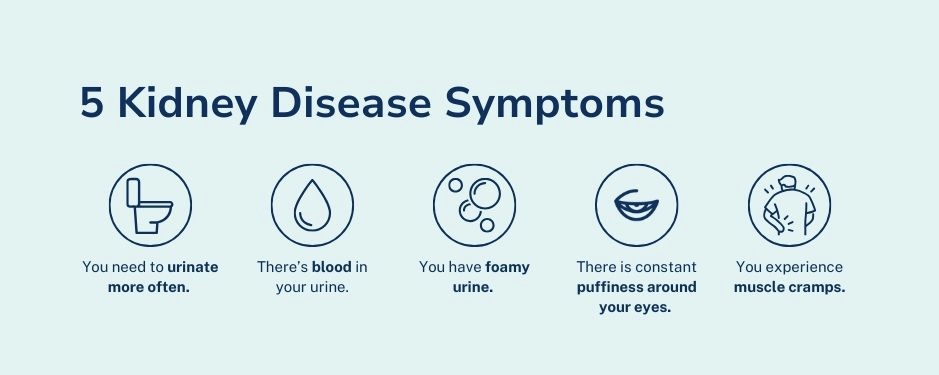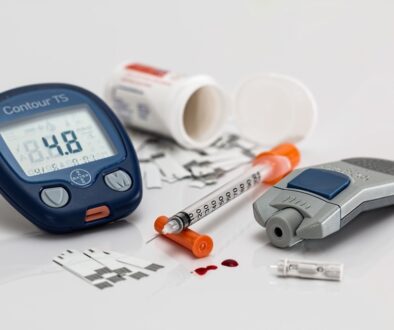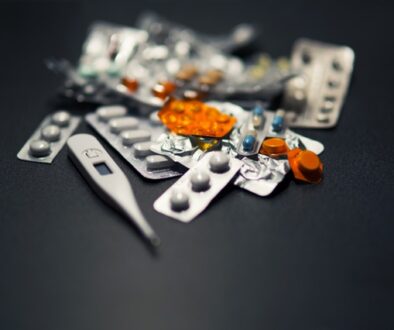Do You Know These 5 Kidney Disease Symptoms?
Your kidneys play a vital role in keeping you healthy by removing excess water and waste from your blood. When they’re damaged and can’t filter blood properly, you’re at risk for developing kidney disease.
Many don’t recognize early kidney disease symptoms which can cause delayed treatment. We’ll take a look at five signs that you may have kidney disease, its causes, and what to do if you’re diagnosed with it.
What Are the Symptoms of Kidney Disease?

1. You Need to Urinate More Often
If the kidneys are damaged, the result is an increase in the urge to urinate—especially at night. While this can be a sign of kidney disease, it can also signify other conditions, such as a urinary tract infection or an enlarged prostate in men.
2. There’s Blood in Your Urine
Healthy kidneys have filters that are able to pull waste from the blood to create urine, and they typically keep blood cells in the body. However, if blood cells “leak” and the blood appears in your urine, it could be an indicator that there’s a problem with your kidneys’ filters.
It’s important to note that blood in the urine is also a symptom of other conditions as well, such as an infection or kidney stones. That’s why it’s important to schedule an appointment with us so we can make an accurate and timely diagnosis.
3. You Have Foamy Urine
You may occasionally see a few bubbles in your urine, and if it happens infrequently, it’s usually not a cause for concern. However, if you have excessive foaming and bubbles–particularly if you have to flush several times to get rid of them—this could indicate that you have protein in your urine, and this is a kidney disease symptom. Protein in your urine serves as an early warning sign that your kidneys may have been damaged.
4. There Is Constant Puffiness Around Your Eyes
Granted, many have puffiness around the eyes now and then, but the key word here is constant. This is caused by protein leaking into the urine due to a failure of your kidneys’ filtration system.
5. You Experience Muscle Cramps
Poor kidney function leads to electrolyte imbalances, and low levels of calcium and abnormal phosphorus can create muscle cramps. Again, muscle cramps in and of themselves don’t necessarily mean kidney damage—they can be the symptom of other diseases—but it is still important for us to evaluate you if you’re having constant pain and cramping.
If you have any of these symptoms, please schedule an appointment with us as soon as possible. If you do have kidney disease, we can start a treatment plan to help minimize damage to your body’s systems.
What Causes Kidney Disease?
There are several diseases or conditions that can create chronic kidney disease. These include:
- Diabetes (both Type 1 and Type 2)
- Inflammation (nephritis)
- High blood pressure
- Vesicoureteral reflux, a condition where urine goes back up into your kidneys
- Polycystic kidney disease
- Continual obstruction of the urinary tract, most often caused by kidney stones, an enlarged prostate or cancer
- Recurring kidney infections (pyelonephritis)
What Places You at Risk of Developing Kidney Disease?
A combination of factors, including family history, can determine your risk for chronic kidney diseases. You’re at risk if:
- You have chronic diseases such as diabetes, high blood pressure or heart disease
- You’re a smoker
- You’re overweight or obese
- You have a family history of kidney disease
- You’re African-American, Asian-American or Native American
- You have structural abnormalities with your kidneys
- You frequently use medications that can damage the kidneys
Can Kidney Disease Be Reversed?
No. You can’t reverse it once you experience kidney disease symptoms. However, the good news is that it can be controlled to prevent it from becoming any worse.
As internal medicine physicians in Raleigh, we are keenly aware of how one system in your body can affect the others. We can treat your kidney disease symptoms with a customized plan tailored just for you, and we’ll carefully monitor your kidney function to track your progress.
How Is Kidney Disease Treated?
As we mentioned earlier, while there is no cure, treatments can keep the condition under control. These treatments include:
Medication
You should take any prescribed medication even if you feel fine. Before you take any nutritional supplements or painkillers, talk with us first. Occasionally, these may affect your treatment and kidney function.
Exercise
We’re big fans of exercise and its many benefits. Not only does it reduce your risk of chronic health problems such as heart disease, but it also helps control your kidney disease symptoms.
Depending upon the extent of your kidney disease, some exercises may be easier than others. Remember the key is getting some type of physical activity—even a brisk walk can go a long way toward helping you.
Quit Smoking
If you don’t smoke, don’t start. Not only does this interfere with medication, but it can make your kidney disease worse.
Need help to quit smoking? Check out these useful tips from the Centers for Disease Control.
If You Drink, Cut Back on Alcohol
Alcohol increases your risk of developing high blood pressure, which in turn can make your kidney disease worse. Therefore, if you also have issues with high blood pressure, we’ll work with you to be sure this is kept in a healthy range
Eat a Healthy Diet
Our dietitian, Nicole Matala can help you find delicious alternatives to high-fat foods so you won’t have to sacrifice flavor or fun for healthy eating.
Raleigh Medical Group Can Help You Manage Your Kidney Disease
If left untreated, kidney disease can lead to renal failure, which prompts the need for dialysis and even for a kidney transplant. We understand how important it is to control kidney disease symptoms and prevent them from progressing.
That’s why, as internal medicine physicians in Raleigh, we’ve dedicated ourselves to the care of the community for more than four decades to become the premier provider of choice for the Triangle area.
If you have any of the symptoms listed above, we encourage you to schedule an appointment with us. Scheduling online is quick and easy, simply contact us to get started on the way to a healthier you.
For more than 45 years, Raleigh Medical Group has served as the Triangle area’s premier internal medicine provider. Comprised of three distinct practices: Raleigh Medical Group, Cary Medical Group and Raleigh Adult Medicine, we tailor our treatments to provide the finest personalized health care available for each stage of your adult life. Contact us to schedule an appointment.




